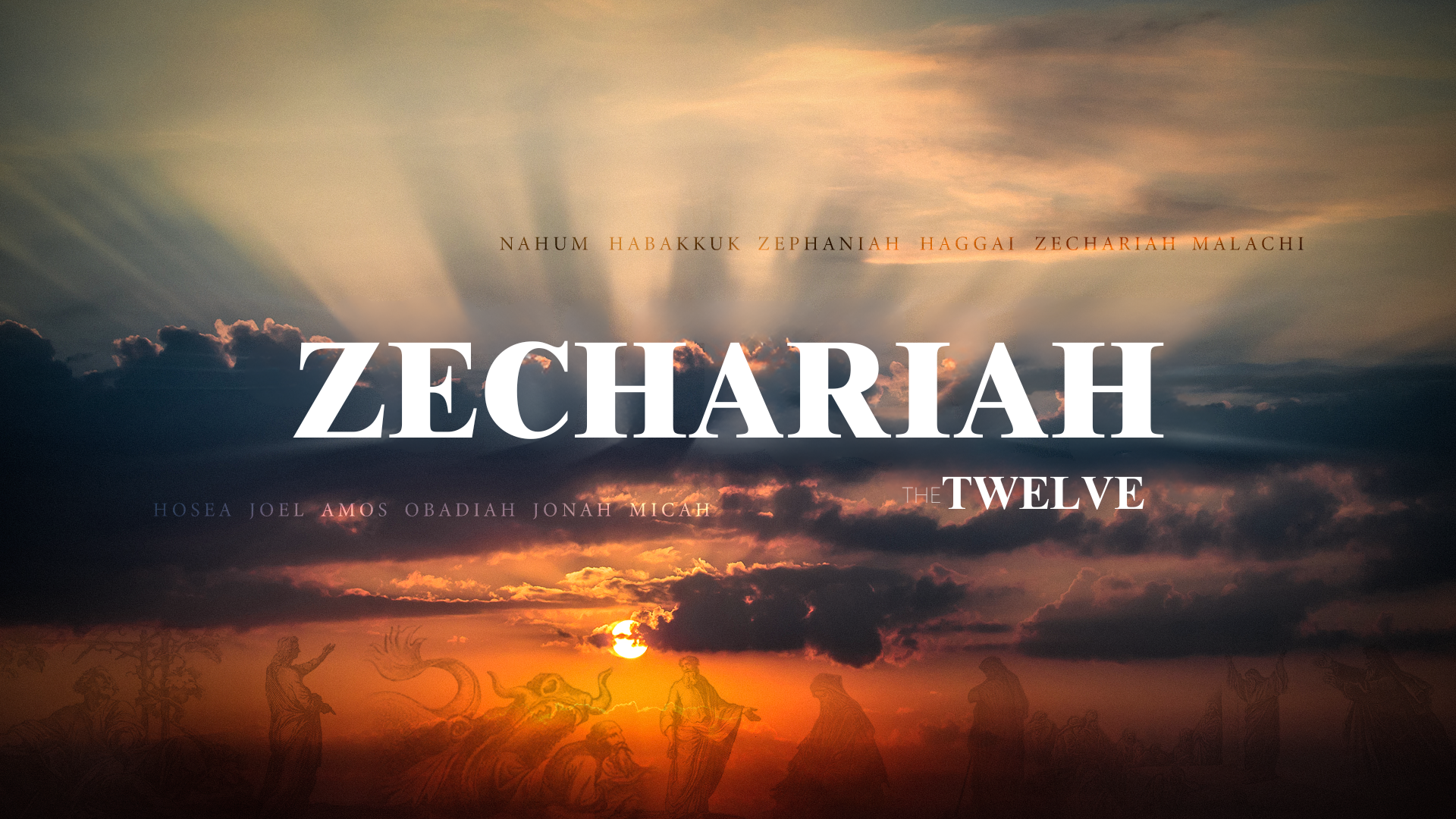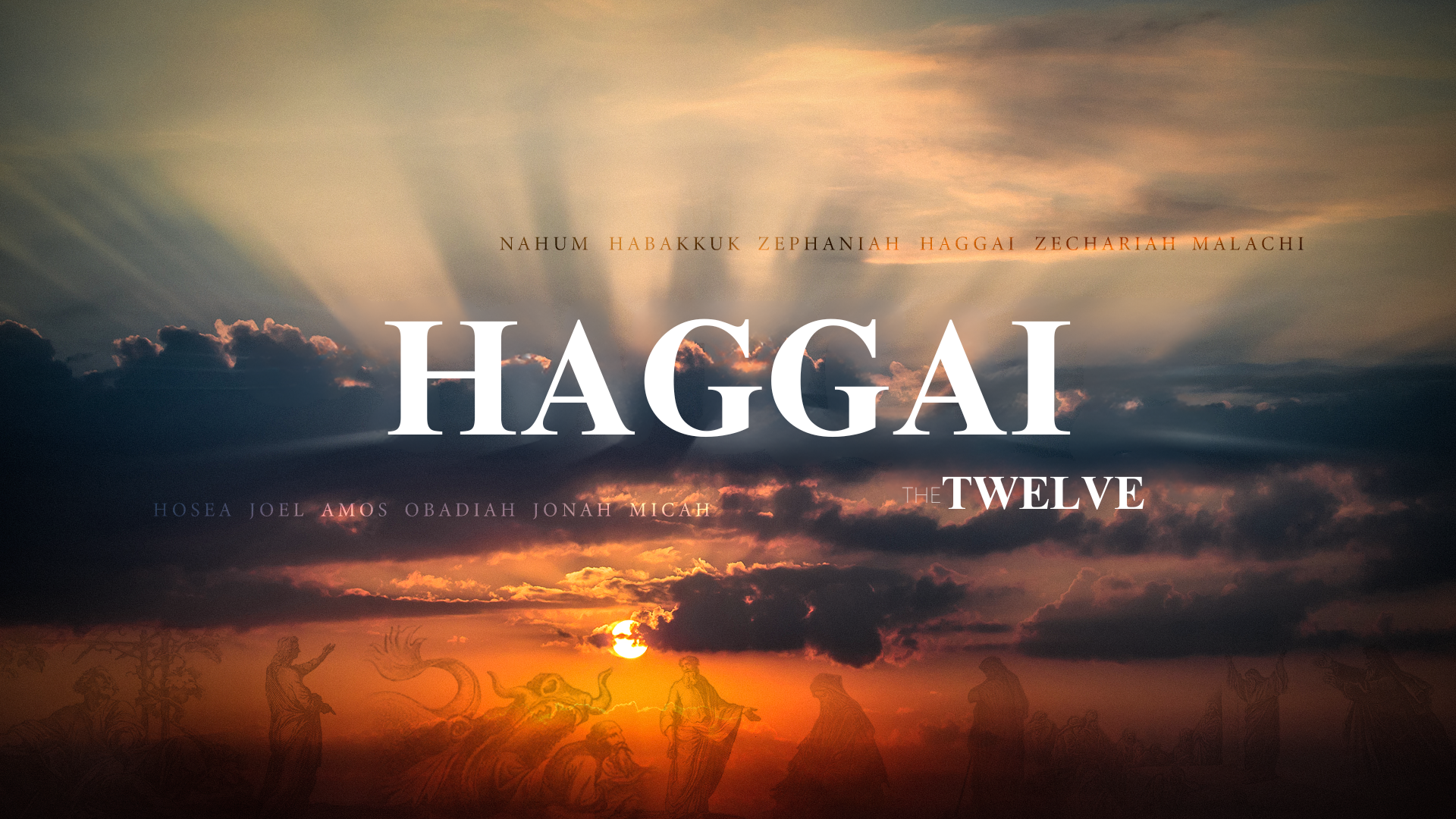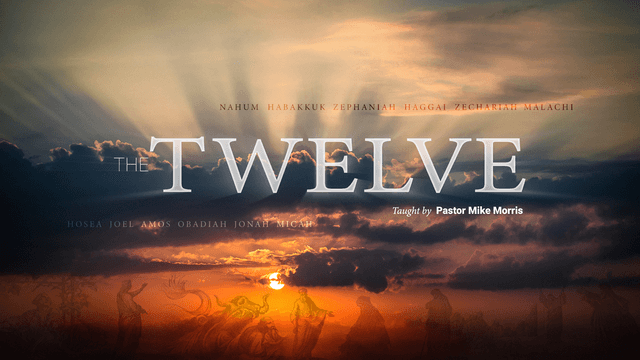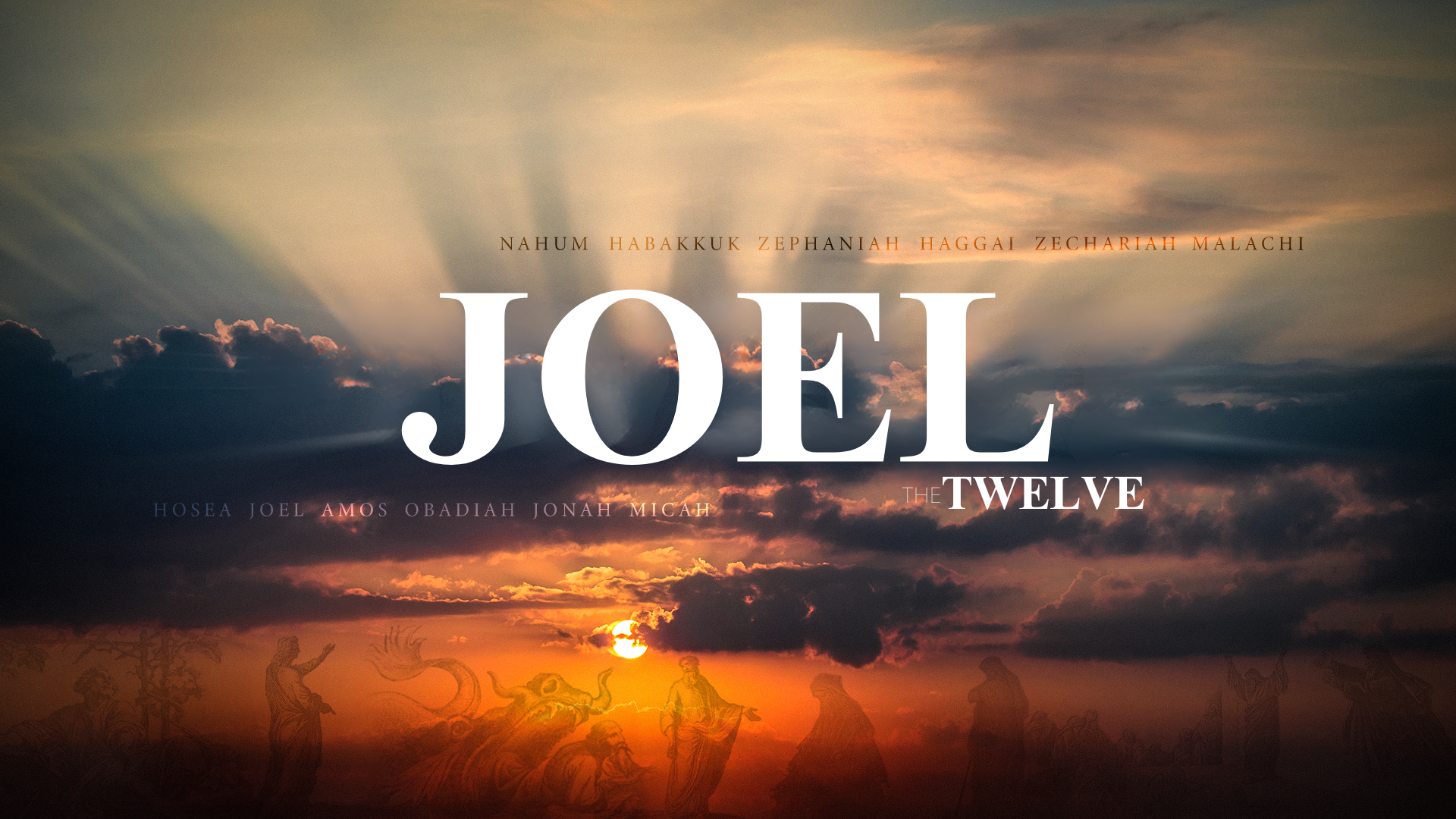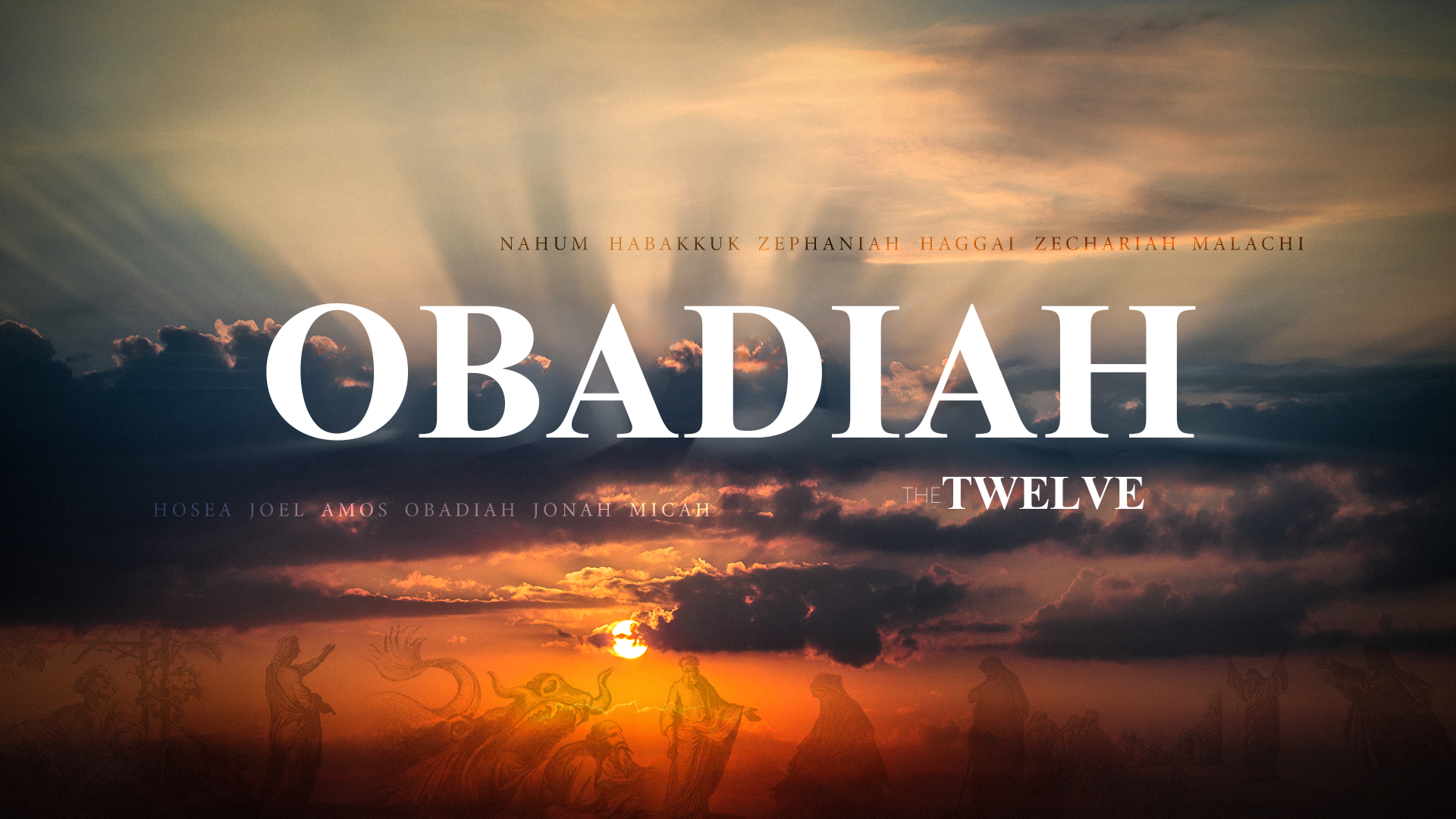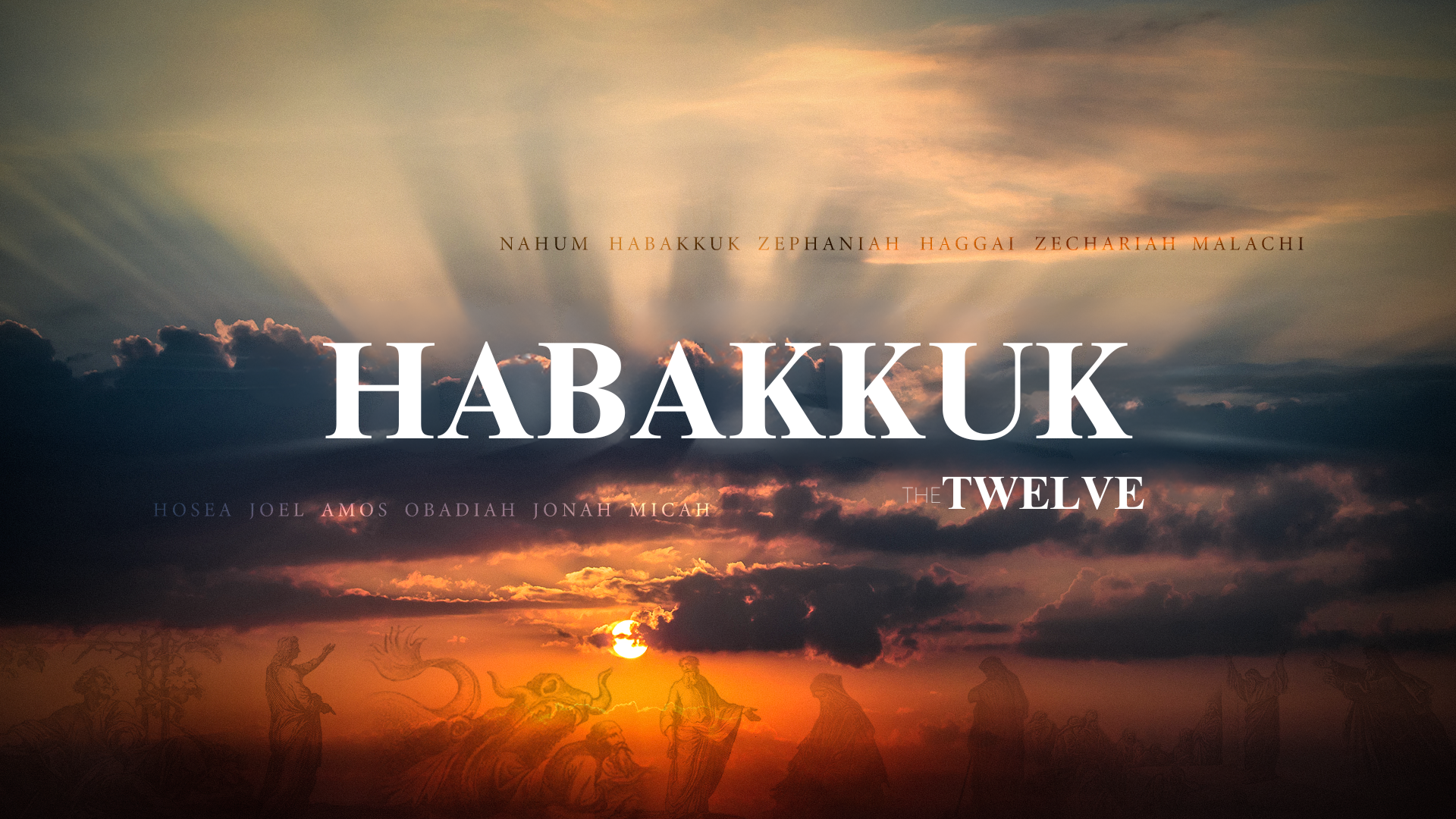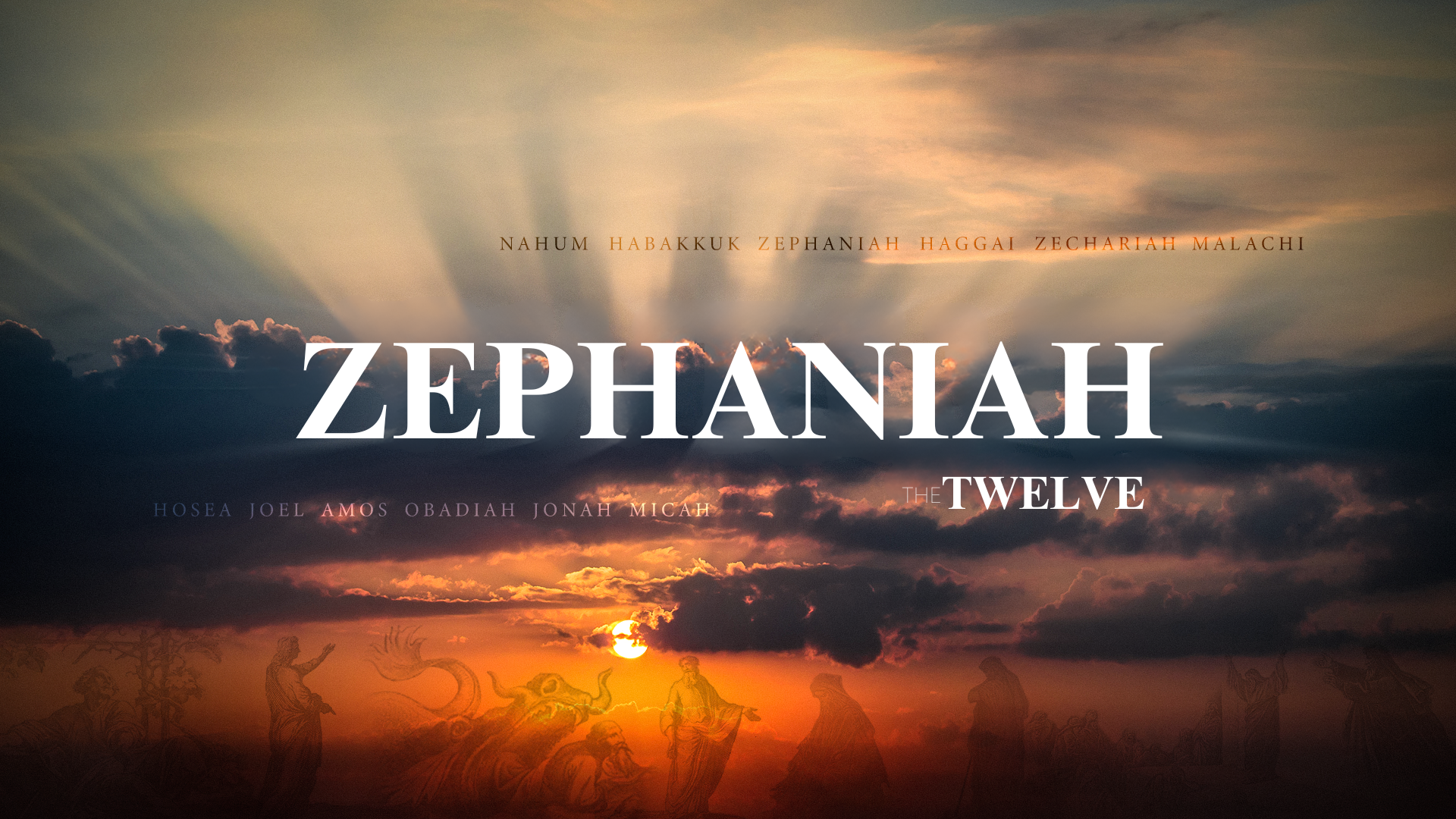MANUSCRIPT
Good morning, Verse by Verse family! I’m Mike Morris.
Thank you, Sanda, for reading the passage for today.
Welcome back to our study of the Twelve, the ancient Hebrew name for the Old Testament books that we call the minor prophets, The last twelve books in your Old Testament.
Let’s open with prayer.
Today we begin our study of the short book of the prophet Haggai. As we start, let’s set the book in context. This is our tenth book in this series.
Let’s look at the timelines of the two Israelite nations in the time of the divided monarchy, Israel in the north and Judah in the south.
The prophetic voice ceased in the north in 722 BC, as the Assyrians crushed Israel, taking them into captivity, an exile from which they never returned.
Judah endured another 135 years before falling to the Babylonians, the nation that conquered the Assyrians. Our studies of Jonah through Joel are available on our website, vbvf.org, under the “Old Testament” tile. Look for the series entitled “The Twelve”
In addition to the historical setting, let’s review some other important features.
Author: the author of the book is Haggai, which means “festal” Other than his name, we don’t know anything else about him.
Date: one of this book's most striking features is its series of dates. This will help us see the pattern. the book begins with a carefully worded date, and exact dates are mentioned six times in the 38 verses of the book. What we learn from these dates is that Haggai preached four short prophetic messages between August 29th and December 18th, 520 BC. The whole book was preached in less than four months.
Content: the prophecies of Haggai deal with the problems facing Judah as they are re-established in the land, and are given at a crucial time in Judah’s history. Up to now in our study of The Twelve, we have been in a pre-exilic context. The messages of the prophets have been largely warnings to the nations of Israel and Judah of coming judgment. But now, Israel remains lost in the reaches of the former Assyrian empire, and the nation of Judah has, through the sovereign grace of God, returned to the land of their fathers, now ruled not by Nebuchadnezzar and the Babylonians, but by the Medeo-Persian empire, a new empire, the largest ever in the ancient near east up to that time, an empire stretching from north Africa to Greece throughout the ancient near east, and west to India and southern Russia. More than 2.1 million square miles, or three times the size of the later Roman Empire.
To understand the post-exilic period, we need to know more about this period and the emperors who led the Persian empire, because in that story we see both the sovereignty and grace of God and His intervening hand in human history on behalf of His people.
Let’s look at a timeline because it’s important to see this in context. As the book of Joel closed, the people of Judah were taken into captivity in Babylon. But the Babylonian empire was not to endure much longer, for already on the horizon were the Persians, led by Cyrus the Great. Cyrus ruled the Medeo-Persian empire from 559 BC to 530 BC and conquered Babylon in 539 BC, almost 50 years into the Judean exile, more if counted from the exile’s first stages. In 538 BC, Cyrus decreed that the Jews were to return to Jerusalem and rebuild the house of the Lord, as recorded in Ezra 1.1.in a stunning display of God’s sovereignty, Cyrus’s role in the story of God’s people was predicted by name in Isaiah 44.24b, 28. In this passage, God speaks of a day when Jerusalem and the Temple would be restored and rebuilt. This was approximately 200 years before Cyrus rose to power in Persia. Isaiah 45.4-6 goes on to say
4 For the sake of my servant Jacob,
and Israel my chosen, I call you (Cyrus) by your name, I name you, though you do not know me.
5 I am the Lord, and there is no other,
besides me there is no God;
I equip you, though you do not know me,
6 that people may know, from the rising of the sun
and from the west, that there is none besides me;
I am the Lord, and there is no other.
When the exiles first returned to the land, they began to rebuild, first the altar, then the Temple, as recorded in Ezra 3.8-10. But there was much opposition from those inhabiting the land, and the work stopped for almost 20 years, from 538 BC to 520 BC, as recorded in Ezra 4.4-5... 4 Then the people of the land discouraged the people of Judah and made them afraid to build 5 and bribed counselors against them to frustrate their purpose, all the days of Cyrus king of Persia, even until the reign of Darius king of Persia.
Cyrus was succeeded by his son, Cambyses, who ruled until 522 BC when he was succeeded by Darius the Great, who revolutionized the empire, extending its borders and instituting innovations like a network of roads, coins for currency, and a postal system. The Persians didn’t account for the year a king ascended to the throne as his first year, so the first year of Darius the King was 521 BC, making 520 BC the second year of Darius the King, just as it is recorded in Haggai. The second decree of Darius to rebuild the Temple is recorded in Ezra 6.1-12, and in 515 BC, the Temple was completed. The events of the books of Esther, Ezra, and Nehemiah also happened during this Persian period.
Structure: the book is comprised of a series of four prophecies or sermons, with each prophecy carefully dated. They vary in style, purpose, and audience, but each is a short, pointed reminder to the people to finish the work they had begun twenty years before when they returned to Judah. to remember who they were and why Yahweh had brought them back to the land. This narrative continues in the next prophetic book, Zechariah, particularly chapters one through eight.I encourage you to read these two prophetic books alongside the historical books of Ezra and Nehemiah to see the full scope of God’s work in returning the people of Judah to their land.
Some might read the book of Haggai and think it’s just about God pushing the Judahites to get to work on the Temple, but there is much more here than that. Haggai is different from nearly all the other prophetic books, for some reasons.it’s true that there are no warnings of future judgment, for the judgment is already underway.it’s true that there are no condemnations of social injustice, for the injustice is entirely directed against God Himself. But remember the time of Haggai’s prophecies. The people returned and began a Temple rebuilding effort, but then work stopped as their adversaries opposed them, and as the people themselves began to become complacent, turning their attention from the Lord to themselves. Now the word of the Lord comes again to the people.
There is much to learn from these short sermons of Haggai. In this story, we see a people confronted with their selfishness and greed, and we feel that challenge for ourselves. We see a people experience the word of God, and we hear that word ourselves. We see people learn about the holiness of God, and we learn those same lessons. We watch a people struggle with faithlessness, and we sense that same struggle, too. And finally, we see a people, strengthened with grace and the presence of God, rise to once again walk in obedience before the face of God, and we realize that we also can rise to follow our God, that we can be strong and courageous and faithful to the work of our God in this world. May the Lord Jesus, Who is the same, yesterday, today, and forever, bless our study of this prophetic book.
“Consider your ways”
Let’s read from Haggai chapter one.
In the second year of Darius the king, in the sixth month, on the first day of the month, the word of the Lord came by the hand of Haggai the prophet to Zerubbabel the son of Shealtiel, governor of Judah, and to Joshua the son of Jehozadak, the high priest: 2 “Thus says the Lord of hosts: These people say the time has not yet come to rebuild the house of the Lord.” 3 Then the word of the Lord came by the hand of Haggai the prophet, 4 “Is it a time for you yourselves to dwell in your paneled houses, while this house lies in ruins? 5 Now, therefore, thus says the Lord of hosts: Consider your ways. 6 You have sown much, and harvested little. You eat, but you never have enough; you drink, but you never have your fill. You clothe yourselves, but no one is warm. And he who earns wages does so to put them into a bag with holes.
This first sermon is given to the two prominent leaders of the people, the governor, Zerubbabel, and the high priest, Joshua. Haggai begins with the prophetic voice: “Thus says the Lord of Hosts”.
This is a teaching moment for our Lord. He has this parental way of holding up our attitudes and actions in front of us, as if we were looking in a mirror, to confront us with the truth. And the truth is this: the exiles had settled for a life focused more on themselves and less on their covenant God. Though they had enthusiastically begun work on the Temple twenty years before, their rebuilding effort had turned from God’s house to their own houses. And to make His point, the Lord quotes the Israelites themselves: “it’s not yet time” to build the house of the Lord. Twenty years had passed, yet they still said it was not yet “time”. the Hebrew word means a suitable moment for something. I’m sure they had reasons, but as they were confronted by the prophet’s word from God, they knew those reasons sounded hollow.
God said, “Is it a time for you yourselves to dwell in your paneled houses, while this house lies in ruins?. they had to acknowledge that their priorities were focused too much on themselves. They had the time and resources to devote to their own homes, but they were unwilling to rebuild the Temple and establish worship once again in Jerusalem. The truth was that it was not the right time for the people to care first for themselves and to let God’s house lie in ruins. And as Haggai delivered this very brief word from the Lord, it became clear to the Israelites that the right thing for them to do was to place the worship and honor and glory of God and His house first, ahead of their own comfort and welfare. Interestingly, the same word is used here for “house” Heb – ‘bay-it’ – not the usual word for “Temple” – God is saying that there are two “houses” and the people were choosing their own house over the house of the Lord. It was time to rebuild the Lord’s house from the ruins left by the Babylonians, for they finally realized what should have been obvious to them: they could say they loved and honored Yahweh, but that was proven a lie when they left His house a disgraceful shambles.
Let me add a thought here. The literal issue in Haggai is houses. God’s house and the houses of the people of Judah. But the real issue is priorities.it could be any part of our lives that causes us to consider the Lord to be of less importance than He is. Your relationships, your cars, your bank accounts, even your service in church. anything you place ahead of the Lord, for He deserves to be in the first place.
The Lord again sounds like a parent as He says, “consider your ways” – think about what you’re doing and the results. Haggai uses two words here that Pastor Tony has rightly emphasized in our study of Proverbs.” consider” renders the Hebrew word “lay’vav” typically translated as “heart” – and “ways” renders the Hebrew word “de-rek” as in the good way and the bad way. Here, God tells the Jews to consider their ways. Recognize the way you are on, step back and look at yourself, and see what’s happening around you.
For their efforts were not producing fruit, and the little they did produce, was lost. He’s calling them to connect their attitudes with their actions and then the results of their actions. They ate, but they were still hungry; they drank, but they were still thirsty; they wore clothes, but they were still cold. They needed to “consider their ways”.
Consequences
Now that the Lord has confronted the people with their flawed priorities, He addresses the consequences of their error, consequences that were already happening, though the people likely didn’t connect their sin of selfishness to the results they were experiencing. This is not a warning about possible judgment, but an explanation of present judgment. Let’s hear God’s words again.
7 “Thus says the Lord of hosts: Consider your ways. 8 Go up to the hills and bring wood and build the house, that I may take pleasure in it and that I may be glorified, says the Lord. 9 You looked for much, and behold, it came to little. And when you brought it home, I blew it away. Why? declares the Lord of hosts. Because of my house that lies in ruins (hareb), while each of you busies himself with his own house. 10 Therefore the heavens above you have withheld the dew, and the earth has withheld its produce. 11 And I have called for a drought (horeb) on the land and the hills, on the grain, the new wine, the oil, on what the ground brings forth, on man and beast, and on all their labors.”
Again the Lord counsels the leaders, and the people, “Think about what you’re doing”. consider what you believe to be most important and consider the choices you have made. but this time, the Lord gives the leaders the opportunity and the instruction to correct their wrong course. the Lord tells the Israelites to go to their “hill country” and find the large timbers they would need to properly rebuild the Temple. the building practice of the day was to intersperse large timbers within the stone. the stone was locally available, but the timbers of the type they would need had to be imported from elsewhere.
The Lord says that because they had not placed a priority on rebuilding the Temple, their life experience was one of frustration. they planted much, expecting, and hoping for a significant crop, but it never happened; God says He “blew it away”.God asks a rhetorical question, “Why?” and then goes on to answer His own question in order to teach the people. He says, Because of my house that lies in ruins (hareb), while each of you busies himself with his own house… reprising what he said in the first paragraph, He explains why the people are experiencing futility. their failure to prioritize God’s house and worship over their own houses leads to a consequence, which the Lord describes with the word “therefore”. the heavens above you have withheld the dew, and the earth has withheld its produce.
Here, Haggai records a Hebrew wordplay to catch the attention of his hearers: in Hebrew, “ruins,” the description of God’s house, is the word ‘ha-reb’ “ha-rev” . the word “drought” is the Hebrew word ‘ho-reb’ “ho-rev” – the similarity in the sound of ‘ruins’ and ‘drought’ would effectively make the point. by leaving God’s house in ruins, the Israelites are exposing themselves to judgment in the form of a drought.
Response
Finally, the leaders and the people understood the connection between the sinfulness of their attitudes and the futility of their actions, and they obeyed the word of God.
12 Then Zerubbabel the son of Shealtiel, and Joshua the son of Jehozadak, the high priest, with all the remnant of the people, obeyed the voice of the Lord their God, and the words of Haggai the prophet, as the Lord their God had sent him. And the people feared the Lord. 13 Then Haggai, the messenger of the Lord, spoke to the people with the Lord's message, “I am with you, declares the Lord.” 14 And the Lord stirred up the spirit of Zerubbabel the son of Shealtiel, governor of Judah, and the spirit of Joshua the son of Jehozadak, the high priest, and the spirit of all the remnant of the people. And they came and worked on the house of the Lord of hosts, their God, 15 on the twenty-fourth day of the month, in the sixth month, in the second year of Darius the king.
Eventually, both the leaders and the remnant of the people obeyed the Lord. because they now “feared the Lord. Hebrew ‘yah-ray’ to regard with respect and reverence; consider holy or exalted; to be in awe of. So often in Scripture, we find these two attributes together: fear and obedience. if you fear the Lord, you are very likely to also obey Him. and if one obeys God, it is evidence of a holy fear and reverence of the Almighty. not a cowering terror, but a deep sense of the holiness and power of God, and our own unworthiness before Him. I think it’s spiritually healthy to hold a high view of God and a low view of ourselves. Humility is becoming to believers.
But then, to ensure that the fear doesn’t overcome them, Haggai adds a crucial truth: Then Haggai, the messenger of the Lord, spoke to the people with the Lord's message, “I am with you, declares the Lord.” .the Lord encourages them with His greatest blessing: He promises the struggling Israelites His presence.
So the Lord “stirred up” the spirits of the leaders and the people. the word means to arouse or wake up, to awaken from sleep. we might use the word “revive” today. When the word of God was preached and the people responded in obedience and reverence for God, revival broke out. their spirits were stirred and they went to work. from Haggai’s sermon to breaking ground for the Temple, it was only three and a half weeks. good on the leaders and people for responding to the prophetic word of God!
What truths do we see from the text? You can write these in your bulletin.
Abandon our excuses about why we should wait for a more convenient time to serve the Lord. the time is now
Align our priorities. a wise person once said, “The main thing is making sure the main thing is the main thing”.it’s certainly true here.set our priorities with God and His glory and His worship at the top of the list
Acknowledge the consequences of our actions. we must connect our choices with their results.in other words, “consider our ways”
Adore our Lord. we can’t say we love the Lord and then dishonor Him, disobey His word, disregard His glory. remember the greatest commandment: to love the Lord our God with all our heart, your soul, your strength, and your mind (Luke 10.27)
Apply the truth God reveals to us. Ask the Spirit to empower you to follow after His ways.to move from understanding to action.
Caution
Most sermons don’t need safety warnings, but this one does. please don’t misunderstand this sermon as an ancient version of today’s prosperity gospel. the lesson is NOT this: if we just get to work, then God will shower us with blessings and wealth. if we build His church, we will win His favor. Nor is this a sermon designed to induce guilt for living in a home with a roof while there are needs here at the church. we are in a building program here at VBVF, and yes, God encourages His people to cheerfully give toward His work in this city and this world through the church.I trust the Lord will use these truths to remind all of us, as He has reminded me as I’ve prepared for today, to place Him first in all things.to live faithfully and sacrificially coram Deo, before the face of God.
There are other examples, of course. Abraham, choosing God’s purposes over his own as he raised the sacrificial knife over Isaac. Moses choosing God’s will and His people over the wealth and privilege of Egypt. and preeminently, in the wilderness, our Lord Jesus choosing His Father’s plan over Satan’s offer of all the kingdoms of the world. and that’s where we will close: by hearing anew the words of Jesus about the priority of the kingdom in the gospel of Matthew: seek first the kingdom of God and His righteousness, and all these things will be added to you.
Seek Him first, and trust Him always. that He will supply all your needs in Christ. That’s the priority God deserves and the faith He rewards.

Taught by Mike Morris
Associate Pastor of Verse By Verse Fellowship
The Twelve Series
